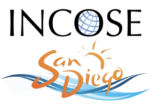Abstracts are now being accepted for the 4th Annual Science of Laws Conference to be held in San Diego, California in November 2017. The Science of Laws Institute’s goal is the same as that of every other science: discover facts, satisfy curiosity, and enable the knowledge and methodologies of science to be applied to the creation of tools (in this case, laws of government) that improve the human condition. Toward that end, the Science of Laws Institute has once again partnered with the San Diego Chapter of the International Council on Systems Engineering (INCOSE) to host the annual Science of Laws Conference.
Abstracts are being sought for all related topics including, but not limited to:
- Cause and effect of governmental laws
- Identifying measures and metrics to gauge the effects of governmental laws
- Outcomes research methodologies
- Governmental law design principles
- Stakeholder views on applying science to the lawmaking process
- Identifying stakeholders that can affect or are affected by a governmental law
- Managing a body of governmental laws
- Success stories and lessons learned
- Curricula development
Authors of accepted abstracts will be expected to present their topic at the conference in San Diego, California as well as provide a written manuscript for inclusion in an upcoming edition of the Science of Laws Journal. Suggested length of the manuscript is ten pages or less.
SUBMISSION REQUIREMENTS:
Please submit the items below in a standard document file format (.doc, .pdf, or .odt)
- Author(s) and organization/affiliation (if applicable)
- Email address
- Phone number
- Title (typically 12 words or less)
- Abstract (100-200 words providing an overview of the paper)
- Key words (may include up to three)
TENTATIVE SCHEDULE:
August 19, 2017 – Abstract due*
September 2, 2017 – Acceptance letter sent to author
September 31, 2017 – Initial draft presentation, initial draft paper, final title, final abstract, and final author biography due
October 14, 2017 – Review committee comments returned to author
October 28, 2017 – Final presentation and final paper due
November 4, 2017 – In-person presentation at the conference
*Submit abstracts to john.wood@scienceoflaws.org no later than August 19, 2017.
Example Topics – 4th Annual Science of Laws Conference
- Cause and effect of governmental laws
- Efficacy of mandatory seat belt law
- Measuring the total societal effects of the ethanol subsidy law
- Measuring the total societal effects of the sugar tariff law
- “Year in Review” – Analysis of peer-reviewed articles addressing laws and their effects published during 2016
- Identifying measures and metrics to gauge the effects of governmental laws
- Identifying markers of population health
- Identifying markers of human rights
- Identifying developed nation benchmarks
- Outcomes research methodologies
- Using mobile apps to measure the number of potholes and their mean time to repair
- Using social platforms to measure increases or decreases in automobile traffic flow
- Governmental law design principles
- Developing an ISO (or ISO-like) standard for governmental laws
- Resolving conflicting stakeholder desires
- Modeling protocols for the design of laws
- Use of economic modeling protocols in the design of laws
- Ethical standards for the design and/or evaluation of laws
- Use of super computers and/or cloud computing to evaluate and predict outcomes of law design models
- Stakeholder views on applying science to the lawmaking process
- Survey of citizens
- Interviews with elected officials
- Identifying stakeholders that can affect or are affected by a governmental law
- Creation of an influence diagram indicating the range of stakeholders (e.g., professions) affected by a governmental law
- Creation of an influence diagram indicating the range of stakeholders (e.g., governmental departments) that affect the creation of a governmental law
- Managing a body of governmental laws
- Developing a Quality Assurance program for municipal laws
- Projected economic impact of the repeal of non-productive laws based upon a quality assurance program for laws
- Identifying and addressing overlapping laws and conflicting laws
- Success stories and lessons learned
- Case study on a town leveraging the scientific process in evaluating their laws
- Case study on the design of a law using the systems engineering process
- Curricula development
- Identifying educational requirements for future law scientists
- Identifying educational requirements for future law design engineers
